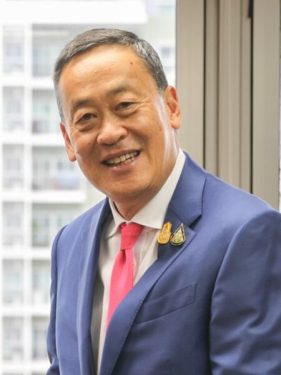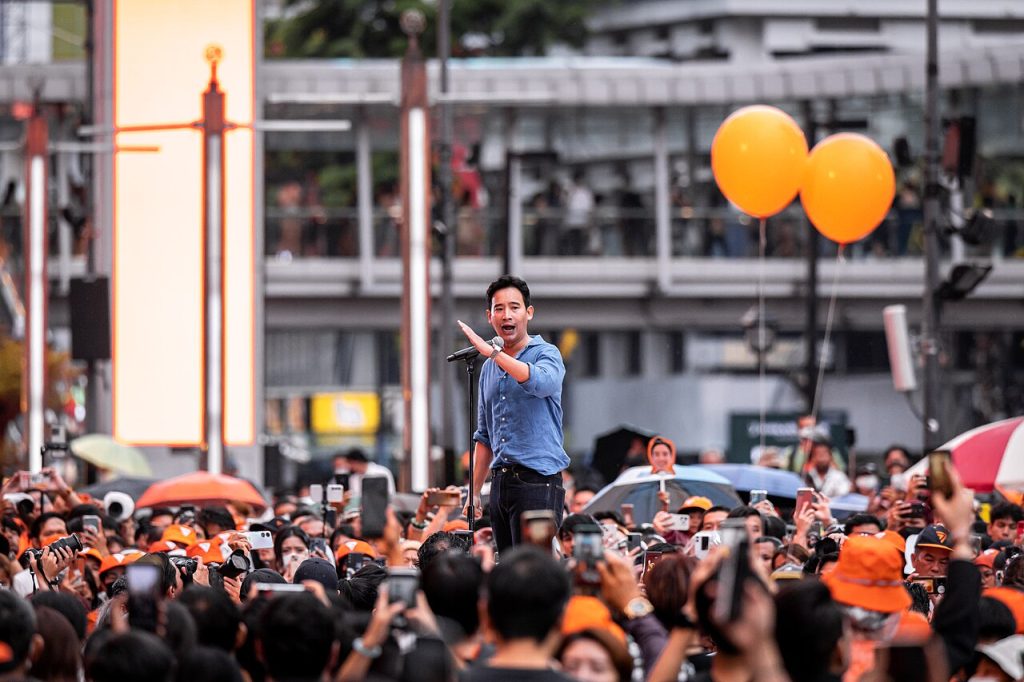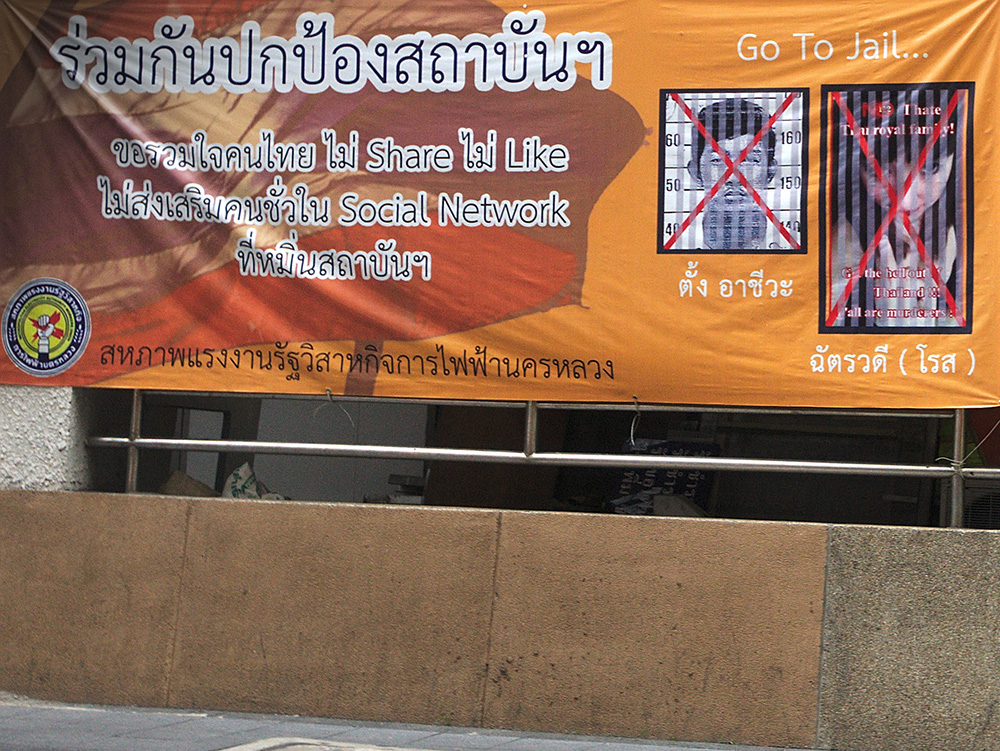
In May of this year, the Move Forward Party achieved a remarkable victory in the Thai elections; increasing the party’s parliamentary seat count from 81 in the 2019 election to 151 in 2023. However, their seat count fell short of the 276 needed to independently form a government. Following unsuccessful attempts at forging a coalition, the political landscape underwent a significant transformation on Tuesday, August 22nd when Former Prime Minister Thaksin Shinawatra, reappeared in Thailand after a 15-year self-imposed exile and, just a few hours later, the Thai parliament finally elected a new prime minister.

Notably, the parliament’s decision marked the appointment of Srettha Thavisin, a real estate magnate and political novice affiliated with the once populist Pheu Thai party which is the 3rd incarnation of Thaksin’s Thai Rak Thai party.
The selection Srettha as PM, which concluded three months of political deadlock, necessitated that the Pheu Thai party form a governing coalition with its historical adversaries, the Thai military, defectors of Pheu Thai, members of the Democrat party now in the dual parties of Thai Raksa Chart and Palang Pracharat. This is essentially a Frankenstein government.
The outcome prompts questions about how this scenario unfolded—how did the Move Forward Party lose prominence, and how did the traditional conservative elite manage to maintain their control of the legislature? How did Thaksin manage to return home and negotiate a member of his own party to become the PM?
To understand this sequence of events, it’s crucial to recognize that Thailand is not a democracy and that Thailand has a history of being governed by a small yet influential group closely linked to the military, royal household, and business conglomerates, resulting in a susceptibility to coups.
Recently, this powerful group encountered an unprecedented challenge from the younger generation of Thais advocating for comprehensive socioeconomic reforms and from many middle-class voters who have simply had enough of the rampant corruption and the constant undermining of norms of decency in Thai society.

These reformist ideals were most prominently championed by the Move Forward Party (MFP) which found fertile ground in the previously mentioned demographics. Yet, the MFP agenda is also a direct threat to the entrenched interests of the Thai establishment.
A cursory review of the Move Forward Party’s platform elucidates the reasons behind the establishment’s resistance to granting them governance. The MFP policies, while necessary for any true democratization or social reform, are best summarized as the 3Ds- demilitarization, demonopolization and decentralization.
This likely sounds great for the majority of Thais and would work wonders for creating a more financially stable middle class but just consider how the conservative military elite and business networks would be impacted.
The most significant resistance to MFP came from the royalist elites which opposed any amendment to Thailand’s draconian lese majeste laws. MFP, a staunch critic of the use of the royal defamation laws which can carry a 15-year prison term, emphatically refused to reconsider its’ stance on the issue and thus cemented significant opposition to MFP leadership.

But there were also other concerns among the military and business establishment. To be specific, here are a few of MFP’s policies on how to effectively complete their 3D model:
- Diminish military involvement in political affairs by disbanding the SBPAC which has spread to all 77 provinces during military rule
- Transition from mandatory military service to a voluntary force
- Bring military businesses such as TV stations, radio stations, kickboxing businesses and other military business establishments into the Ministry of Finance
- Draft and enact a fresh democratic constitution (eliminating the 250 junta appointed senators)
- Challenge large business monopolies and enhance economic competitiveness
- Champion the right of laborers to join trade unions and engage in collective negotiations
- Introduce a 40-hour workweek with required overtime for additional hours
- Declassify adult entertainment and related products
- Legitimize marriages between individuals of the same sex
- Advance gender parity and curtail domestic abuse
- Advocate for the rights of the LGBT+ community
- Institute a contemporary modern welfare state
For the average Thai, many of these policies sound reasonable and would likely result in improvements to their quality of life. To the conservative establishment, these policies represent a direct challenge to their base of wealth, prestige, privilege and power. Therefore, MFP had to be blocked from assuming power by any and all means necessary.

The MFP policy platform was a frontal assault on the oft commented upon military-monarchy relationship. It was seen as an assault on the grey military businesses that generate billions in revenue for the generals to distribute to their patrons. The loss of such revenue is tantamount to breaking the link of military leaders and potential constituents, jeopardizing the military leaderships’ position in the Thai social hierarchy through the removal of entrenched business interests that derive massive revenue due to government largesse and recalibrating the labor/business relationship. This was epitomized in the massive drop in energy stocks seen on May 15 and their subsequent rebound as MFP was shunted aside.
MFP’s platform, while ambitious, also betrayed a lack of pragmatism and foresight and is rooted in ideological rigidity. The idea that the ruling elite would allow such social change is indicative of sophomoric political hubris.
The MFP policy platform is also a byproduct of the nature of Move Forward’s bottom up and non-traditional approach to politics. It seems reasonable to conclude that there are two primary forces at play with Move Forward; 1) an idealism of politics as the arena to achieve the greater good and 2) a political party that is at times led by its voter base rather that the traditional party first approach which is common in Thai politics.
The return of former PM Thaksin and the endorsement of a Pheu Thai prime minister signals a significant agreement between the Thai elites and their former bitter rivals. While Thaksin may temporarily be in custody, his party is once again at the helm of the Thai government and the MFP is left to wait for another election in the opposition seat.
While some may argue that this time may best be used by MFP to develop a more pragmatic approach to dealing with the ruling elites in parliament, it is also a time for MFP to expose the corruption and incompetence of the new coalition government, to coalesce the young, the liberal, the disenfranchised and the antiestablishment actors into a movement capable of opposing the current institutional intransigence. Without such mobilization, MFP’s 3Ds and much of its policy platform will only exist on paper and Thailand will likely see more Frankenstein governments in the future.
William J. Jones
Mahidol University International College, Thailand
Douglas L. Rhein
Mahidol University International College, Thailand
Banner image: Move Forward Party speech at Samyan Mitrtown, Bangkok 22 April 2023. Wikimedia Commons
